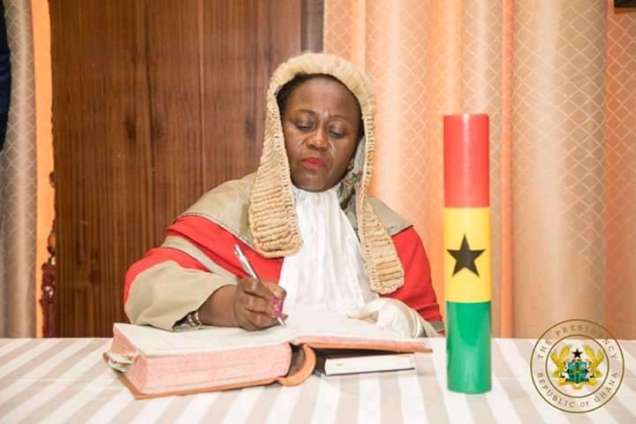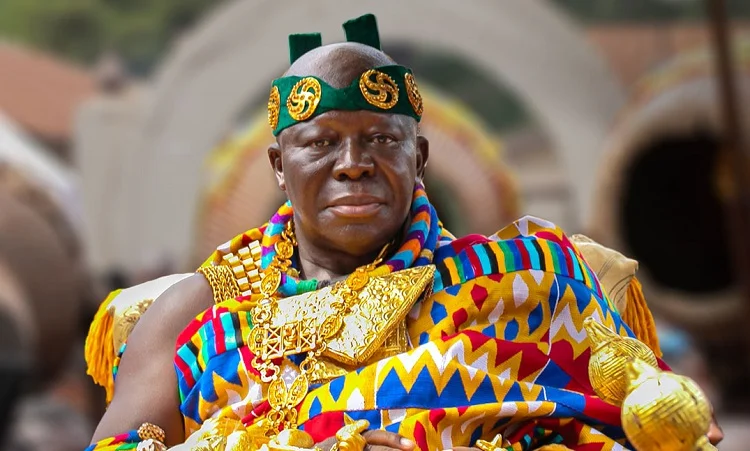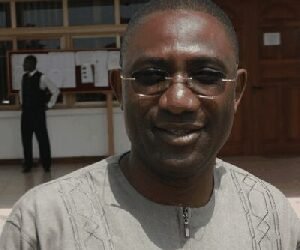The People’s National Party (PNP) has formally petitioned Asantehene Otumfuo Osei Tutu II, urging him to intervene in what it described as a politically driven campaign by President John Dramani Mahama and the National Democratic Congress (NDC) against the suspended Chief Justice, Justice Gertrude Torkornoo.
Justice Torkornoo’s suspension, according to the party, represents a disturbing abuse of executive authority and a targeted attempt to silence one of the nation’s highest-ranking female officials.
The appeal was led by Janet Nabila, the leader of the People’s National Party (PNP), who minced no words in her accusations against the Mahama administration.
Addressing the media at the Manhyia palace, she claimed that the president was engaging in a “vindictive and wicked” effort to punish perceived enemies and consolidate control over all three branches of government.
“We have come to Manhyia to present a petition to him, because of what is happening with the suspended Chief Justice’s issue. We’re women, and a particular party comes and we realise that a particular party is targeting women and using all means that are abusive in nature to get what they want, it becomes so worrying.”
Janet Nabila
Madam Nabila shared that she was emotionally overwhelmed after listening to the suspended Chief Justice publicly recount her experience.

She described the situation as a clear violation not only of Justice Torkornoo’s rights but also of the dignity of Ghanaian women, arguing that it reflects a troubling pattern of how women in leadership roles are often targeted.
Nabila also cautioned that the country’s judicial system risks losing its independence and becoming an instrument of political control under the current administration.
“Whatever they are doing to the woman is an abuse of power. Since all protocols are no longer working, our justice system becomes an extension of the political party.”
Janet Nabila
She explained that the decision to submit the petition to the Asantehene was rooted in the recognition of traditional authority as a guiding moral force.
In times when democratic institutions seem weakened or compromised, she believes traditional leadership can provide crucial oversight and balance.“We decided to come to the Manhyia Palace since the traditional authorities were there before democracy.”
PNP Challenges Government Over Embattled Chief Justice Row
Janet Nabila further delivered a sharp critique of the government’s celebration of National Thanksgiving, questioning its sincerity in light of recent actions.
She argued that the administration should focus on introspection, particularly regarding its handling of the suspended Chief Justice’s matter.

“How do you celebrate National Thanksgiving when you are wicked and vindictive? When your modus operandi is to punish your enemies? They should be celebrating National Day of Repentance.”
Janet Nabila
Accordingly, the PNP demanded that the process to remove Justice Torkornoo be halted immediately and called on other civil society organizations to join in raising alarm over what they believe is an unconstitutional and politically motivated move.
Addressing issues of perceived bias—particularly criticism that she remained silent during the removal of former Electoral Commission Chairperson Charlotte Osei—Nabila was unapologetic.
She insisted that her current outcry stems from the “abusive and coordinated” nature of the attack on the judiciary under the present circumstances, claiming that the case of Justice Torkornoo is emblematic of a broader pattern of injustice.
The party’s petition to the Asantehene calls for him to use his revered position to restore balance and uphold the sanctity of the judiciary.
Traditional rulers, the PNP argued, have historically been protectors of justice and fairness in Ghana and must not remain silent in the face of what they believe is democratic backsliding.

As debate around Justice Torkornoo’s suspension continues to gain traction, it has become a focal point in the broader conversation about the health of Ghana’s democratic institutions.
The PNP’s public petition and spirited critique reflect a growing unease about political overreach and gender equity in governance.
Whether the Asantehene responds with public statements or private counsel remains to be seen.
What is certain, however, is that the PNP’s challenge to the administration has escalated the issue to national prominence, sparking conversations about judicial independence, political ethics, and the traditional authority’s role in modern governance.
READ ALSO: Aid Groups Call For End To Gaza Humanitarian Foundation























